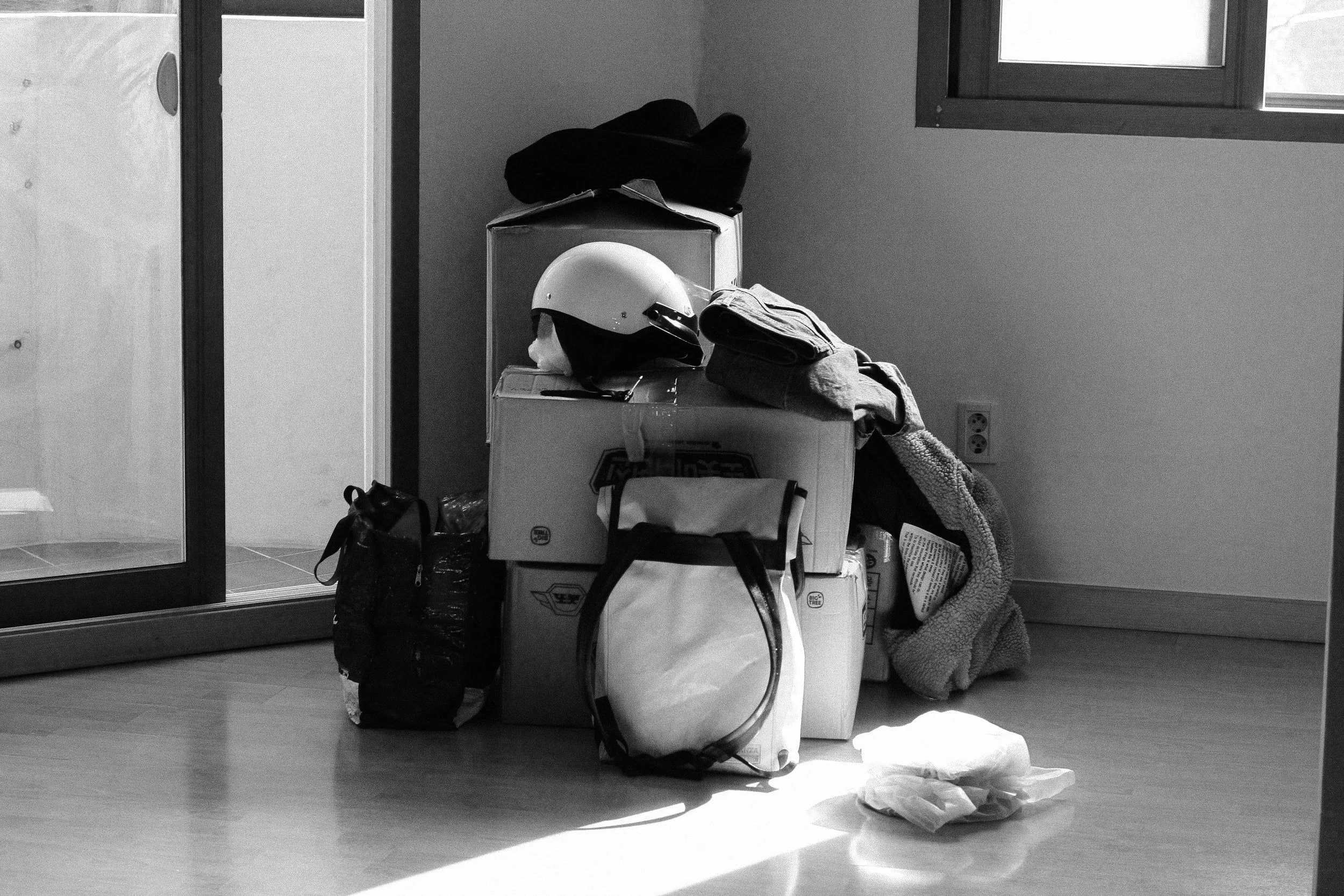Helping Your Student Prepare for Going Away to College
North Shore College Consulting is proud to introduce our guest blogger, Amrya Henry, LCSW. Amrya is a private psychotherapist and School Social Worker, with over 20 years of experience working in the field of special education, and she is available to assist parents and/or students manage the emotional aspects related to the student leaving home and having to function independently for the first time. For more information, visit www.amyrahenry.com.
Congratulations! Your student has been accepted to college and is about to embark upon an exciting new life chapter. You and your child are rightfully proud of this accomplishment, which reflects significant efforts in the areas of academic achievement, involvement in extracurricular activities, as well as perseverance through the college application process. Enjoy the windup of this academic year and celebrate the milestone of high school graduation and matriculation to college.
However, it is also important to be mindful of the fact that while you honor the achievements of your student, you are also concurrently embarking upon the process of helping him or her prepare to leave the familiar, comfortable family nest. In preparing your child to transition to college, you want to maximize his or her opportunity to succeed both from a social-emotional and an academic perspective. This begins with helping your child understand how college differs radically from his or her previous high school experience with respect to academic expectations, time management, organization, effective study skills, as well as the ability to function independently and responsibly in a setting with seemingly boundless personal freedom.
As a clinical and school social worker, I have had the pleasure of seeing many of my teen and young adult clients thrive in college, experiencing academic success as well as great personal growth and happiness. However, unfortunately, I have also had clients who did not understand the paradigm shift from high school to college, and who ended up on academic probation or outright failure, creating great stress and anxiety, and even necessitating a return to living at home and attending community college. These outcomes created a crisis for both the student and the family, were devastating to the student’s self-esteem, and impacted the student’s ability to launch successfully as a young adult. Therefore, I strongly believe that matriculating students would be best served by parents having candid discussions about what it takes to be a successful student and create an effective study-life balance.
It is important for your student to understand that the skills and strategies that made him or her successful in high school and resulted in college acceptance may not be relevant in the actual college setting. The parent-child discussion should address academic, life, and interpersonal skills that would be most adaptive to effective independent living in the college environment, and subsequently as an adult in the workforce.
To succeed in college, the student needs to create good habits from the very beginning of his or her college experience. It is important for parents to help their student prepare for the increased academic demands that he or she will face in college. The student needs to understand that course grades are generally predicated on 1 or 2 papers and 2 or 3 exams per semester that cover large amounts of material. There is little margin for poor grades, as unlike in high school, college professors do not typically afford students the opportunity to raise grades by earning extra credit for participation or additional work.
Study Skills
The most important factor in student success is having effective study skills, with respect to how you study, what you do inside and outside of the classroom and how you manage your time.
Here are some common study tips that parents can share with their student:
Avoid missing a class unless you absolutely must.
Arrive on time.
Be prepared by completing all assignments prior to class.
Take thorough classroom notes, which you review regularly, rather than cramming before exams.
Use your class syllabus as the basis for information to be included in a weekly and monthly study schedule planner. Your planner should include due dates for all reading assignments, papers, and exams. Your study schedule should also include locations and times for classes and study periods, study breaks, meals, exercise, socializing and extracurricular activities.
College students are on their own as to time management, organization, planning, and the prioritization of tasks. The student needs to understand that time availability in college is deceptive. College students generally spend only 12 to 16 hours each week in class. However, following the “two for one rule,” outside classwork typically consists of 2 to 3 hours for each hour spent in class.
Prioritize studying over all other competing demands.
Work ahead when possible. The biggest factor in student failure is falling behind in your work. This is particularly important with respect to test preparation and writing papers.
Establish a study routine by studying at the same time every day.
Create a daily, realistic to-do list of tasks; reward yourself after completion of each task.
Avoid procrastination. Make sure to allow yourself plenty of time for task completion.
Limit study sessions to 30-45 minutes, followed by a 5–10-minute break.
Chunk your long assignments into smaller, more manageable parts.
Minimize study in the dorm, where there are many distractions. Use the campus libraries, particularly when you have large blocks of time between classes.
Maintain good study habits by studying either with a buddy or in a study group.
Establish a personal connection with your professors, including attending office hours as needed to facilitate a deeper understanding of the course material.
Maintain an uncluttered study space.
Remove all possible distractions from your study area.
Focus on one task at a time, rather than trying to multi-task.
Life Skills
Your student will benefit from parental involvement in the advanced teaching of valuable life skills such as basic cooking, laundry techniques, and money management. Parents can also talk to their student about prioritizing positive self-care, including scheduling healthy meals, exercise, as well as study breaks to enhance learning and manage stress. Your student should also establish a basic sleep routine prior to leaving for college, including turning off all electronics an hour before bedtime and waking up independently every morning to ensure being able to get to class on time. Parent-child discussions should also address making healthy choices and anticipating consequences regarding sexual activity, drug and alcohol use, COVID restrictions, resisting negative peer influences, and exercising personal and academic integrity.
Interpersonal Skills
For many students, college may represent their first experience with communal living. College freshmen are faced with the challenges of living with roommates, meeting new people from diverse backgrounds and life experiences, making new friends, exploring new interests and activities, and being held accountable for choices regarding personal behavior and academic responsibilities. As with most new experiences, going off to college is likely to feel “uncomfortable,” as your student may feel lonely or homesick amidst the challenges of adjusting to a new environment. You as parents can normalize these experiences by actively listening and allowing your student to vent and safely express his or her feelings. You can also communicate confidence in your child’s ability to manage difficult situations by noting past instances in which he or she successfully dealt with personal challenges. You could serve as a sounding board, asking: “What do you think you should do?” or perhaps by helping your child identify campus resources that could provide support and assistance. But most importantly, you can communicate confidence in your student’s ability to manage difficult situations by giving him or her the opportunity to resolve the issue themselves.
Parents and their student can together devise a summer action plan, including accessing freshmen orientation information to familiarize the student with the campus, as well as asking and getting answers to pressing personal questions. Parents can also encourage their student to connect with other incoming freshmen, including prospective roommates via Facebook or Instagram or even via an in-person meeting if the students live in close proximity. Additionally, your student can research ways to get involved on campus, including planning to attend meetings or joining groups that reflect his or her existing or new interests. Encouraging your child to make social connections in advance of arriving on campus can potentially mitigate the awkwardness of being thrust in a new, unfamiliar social context.
Additional Student Support Resources
The parents, together with their child, should research how to access academic support, as well as information regarding college health and counseling services. Students who have previously received academic support services via an IEP or 504 Plan during high school will now need to more actively self-advocate with professors and Student Services to ensure receiving the accommodations and modifications for which they qualify. As part of the orientation process, your student should establish contact with a Student Services representative who can assist him or her in navigating the system and ensure accountability on the part of the college.
Furthermore, students who are currently in treatment with medical and/or mental health professionals should arrange in advance for such services at the college, or privately in the community. This includes ensuring that your child has a current prescription for purpose of medication refills, as well as having an adequate supply of his or her medication. It is also important to know that medical and mental health professionals are only permitted to treat clients in states in which they are licensed, including via telehealth. Your child’s current practitioners may not be able to continue to provide support. However, life and executive function coaches that are currently working with your student do not have the same professional constraints and may be able to continue to virtually provide significant emotional support and assistance in the vital areas of study skills, organization, time management, and motivation. It has also been my professional experience that Student Health Services often have considerably long wait lists for counseling services. Parents should seriously consider helping their student connect in advance to private practitioners in the surrounding community, in the event of adjustment issues or emotional crises.
Finally, parents should make certain that in advance of matriculation to college, their student has signed a legally binding consent for the release of information regarding educational, medical, and behavioral health issues. This document will enable college personnel to share privileged information with parents, should any significant concerns arise.
In conclusion, matriculation to college constitutes a significant rite of passage in the life of the student and the family, as it presages entry into adulthood. Parents who proactively work with their child to prepare for the transition to college maximize his or her likelihood for academic success and the acquisition of vital life and social-emotional skills. Ben Franklin once said, “An ounce of prevention is worth a pound of cure.” Hopefully, these tips will set the foundation for the establishment of good habits that your student can carry into adulthood and a productive, fulfilling career.
Are you looking for expert guidance with the college admissions process? At North Shore College Consulting we are here to help you with every step of the college admissions process. Send us an email at info@nscollegeconsulting.net to find out how we can help you succeed.





